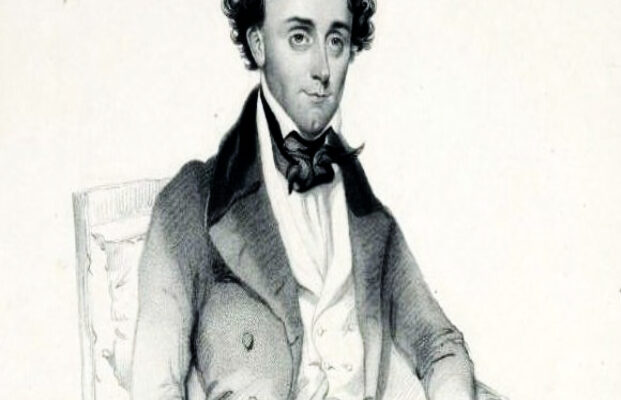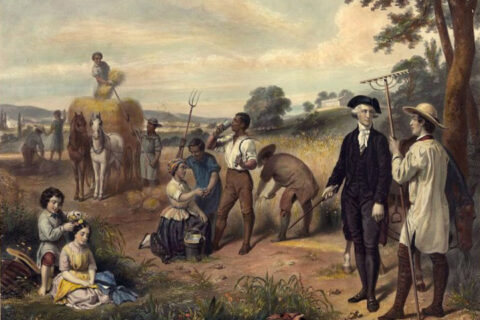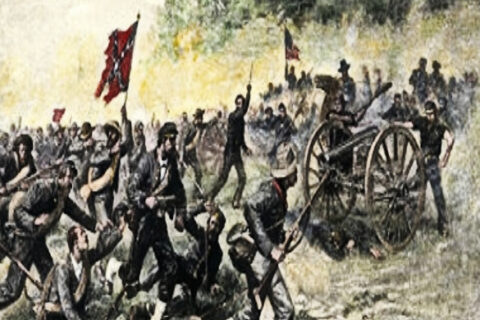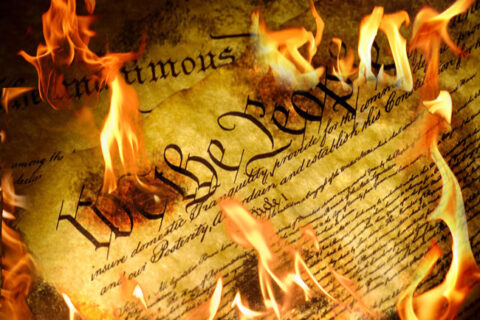Whereas Jim Crow laws and segregation stand as the imminent sin of White Southerners, egregiously little actual discussion is conducted concerning its genesis. Relegated to nothing more than Caucasian bigotry from all classes designed to maliciously oppress Negroes immediately following the end of Reconstruction, de facto segregation catalyzed in a far more complex situation as a result of numerous conflicting factors. This essay seeks to provide clarity on the topic of the origins of Jim Crow voting and segregation laws.
First and foremost of the Jim Crow topic, social segregation developed organically at first but artificially in the end. Naturally, White and Negro Southerners began the process of self-segregation in some social activities and locales. The most notable examples of this de facto segregation occurred within churches and schools. Despite this, quite a great deal of social interaction and intimacy took place between the two nations of people. In fact, numerous Yankees found it astonishing just how intimate the relationship of the two folk could be. New England abolitionist Colonel Thomas Wentworth Higginson traveled to Virginia, South Carolina, and Florida to investigate injustices enacted upon the Freedmen in 1878. Astonished at the conditions of peace between Whites and Blacks, he pondered as to whether there may have been sinister plots in the shadows to re-enslave the Freedmen. He found no evidence of such baleful schemes and said, “I can assert that, carrying with me the eyes of a tolerably suspicious abolitionist, I saw none of these indications.” Comparing the situation in the South to that of his native New England, Higginson stated, “How can we ask more of the states formerly in rebellion than that they should be abreast of New England in granting rights and privileges to the colored race? Yet this is now the case in the three states I name; or at least if they fall behind at some points, they lead at some points.” Sir George Campbell, a member of British Parliament, traveled across the region with the intention of observing race relations in 1879 and claimed that “the humblest Black rides with the proudest White on terms of perfect equality, and without the smallest symptom of malice or dislike on either side. I was, I confess, surprised to see how completely this is the case; even an English Radical is a little taken aback at first.” This social intimacy was not to last, though. Numerous political and legal developments during the 1880s, 1890s, and 1900s irreparably soured the amicable, even intimate, relations between the two races.
Legislative actions enforcing public segregation would not begin until 1890 with the passage of Louisiana’s Separate Car Act; however, there had been a lengthy buildup to the law. Beginning in the 1870s, passenger trains started to segregate their cars. In addition, the separation of the public interaction of Whites and Negroes increasingly became custom in larger cities, Atlanta, Georgia being a notable example. Social segregation developed so stringently within urban areas due to numerous factors and circumstances of the time. The accumulation of poorer rural White and Negro movement into the cities, the various populist movements of the late 19th century, the horrors of Reconstruction, the New South activism and racialism of Henry Woodfin Grady, public transportation, and other relating issues spurned the movement.
The second defining characteristic of Jim Crow laws, and legally the most impactful, consisted of voter restrictions and regulations. Contrary to the historic misinformation purported within American education facilities and the media, Black voting rights did not face impediment until the 1890s, and even then, the phrasing of the litigation did not directly inhibit them from voting. To correct the historiographic record, voting restrictions manifested as a result of the agrarian populist movements of the 1870s and 1880s. In states such as Mississippi, where the Negro population comprised a significant proportion of the population of the state, or in Mississippi’s case the majority, it was exceedingly difficult for rural Whites’ voice to be heard. The Southern elite, or Bourbon Democrats, utilized the large Black populations in the South to outvote the rural Whites by claiming to protect them from the feral rural “rednecks” while also telling rural Whites that they should vote Bourbon to prevent Negro rule from returning. Nowhere else did this ring more true than in the Magnolia State. Whites caught on to this, and desperate for political, social, and economic reform, they grew disillusioned with the Bourbons, many of whom comprised the Redeemers who saved Dixie from Republican Reconstruction. The conservative minded Bourbons had grown corrupt shortly after Reconstruction’s end and did little to improve the region following the ousting of their Yankee conquerors.
It was this phenomenon which drove the rednecks outside of the Delta to call for a restriction on Negro voting and a new state constitution. Eventually, the populism outcry grew so loud and fervent that the Mississippi legislature capitulated and drafted and adopted a new state constitution in 1890. This marked the beginning of Jim Crow voter laws in the South by introducing poll taxes and literacy tests, and the rest of Dixie began following this pattern of adopting Jim Crow constitutions between 1890 and 1908 in what was known as the second Mississippi Plan. However, and much to the dismay of the agrarian Southern Whites, this particular constitution, while restricting some Negroes from voting, also served to greatly disfranchise much of the poor Whites of the state. As such, many Negroes in Mississippi and Dixie as a whole continued to vote until 1896. 1896 marked the true wholesale vacating of the Negro voters from the polls and ballots. In that year, South Carolina, under the leadership of agrarian populist Senator and former Governor Benjamin Tillman, adopted a law legalizing White-only primaries, parallel to its adoption of a Jim Crow constitution. Following this, every Southern state adopted White primaries from 1896 to 1906. These new constitutions and primary election laws bolstered the burgeoning populism of the time and gave rise to a new era of Southern politics. This allowed for superlative Southern statesmen to rise to power throughout the 20th century, even after the thwarting of these laws at the behest of the Supreme Court of the United States starting in the 1940s. Several of these imminent men included Theodore Bilbo and James Vardaman of Mississippi, Benjamin Tillman and Strom Thurmond of South Carolina, Jim Jones Sr. and George Wallace of Alabama, Eugene Talmadge of Georgia, Huey Long Sr. of Louisiana, Allan Shivers of Texas, Harry Byrd Sr. of Virginia, and several others too numerous to quantify.
In conclusion, Jim Crow’s reign was ushered in under a plethora of compounding social and political factors. Though emerging parallel to each other, voter laws and public segregation were not necessarily a result of the same congruent problem. However, they did emerge from the same cauldron of pitiable misfortunes. Unfortunately, this history has been all but completely erased, and very few modern Southern elders appear interested at all in passing down Southern history orally. It is a shame Dixie succumbed to the racial turmoil the way it did; however, it cannot be objectively stated that the White Southerners were the villains regarding Jim Crow laws. In reality, they and the Negroes were mere victims of a dark, macabre, grim era of military conquest, hierarchical inversion, economic instability, industrialization, indigence, social revolution, and political corruption.
Bibliography:
Kirwan, Albert D. Revolt of the Rednecks: Mississippi Politics 1876-1925. Lexington, KY: The University Press of Kentucky, 1951.
Morgan, Chester M. Redneck Liberal: Theodore G. Bilbo and the New Deal. Baton Rouge, LA: Louisiana State University Press, 1985.
Trotter, Jack. “The Strange Career of Segregation.” Abbeville Institute. Last modified April 1, 2020. Accessed January 25, 2023. https://www.abbevilleinstitute.org/the-strange-career-of-segregation/.
Woodward, C. Vann. The Strange Career of Jim Crow. Oxford, MS: Oxford University Press, 2002.
———. Origins of the New South 1877 – 1913. Baton Rouge, LA: Louisiana State University Press, 1951.
“The White people of the South are the greatest minority in this nation. They deserve consideration and understanding instead of the persecution of twisted propaganda.” –Strom Thurmond






Thank you Mr. Wasp. I always enjoy your history articles.
Thomas Wentworth Higginson, was a God hating unitarian scumbag, who spent his life formenting war with the South. He was a member of the Secret Six that financed John Brown. He was an evil man. He won’t survive Gods Judgment. Amen
‘Another of the Tillman brothers died of wounds received while fighting as an officer in the Confederate army, and Benjamin, too, narrowly escaped death as a soldier….. Shortly after his recovery he married and settled down on a 400 acre farm given him by his mother. Negro and carpetbag rule roused him to wrathful action, and he participated in more than one affray that was calculated to strike terror to the heart of the freedmen. Then, with the negroes and carpetbaggers out of the way, he turned his energies against the bourbon rulers of the state, whose misdeeds, he convinced himself, had much to do with the economic distress of the back-country farmers’.
The Populist Revolt. John D. Hicks. 1931. P. 144.
From the same book. P. 160
Wall Street owns the country. It is no longer a government of the people, by the people and for the people, but a government of Wall Street, by Wall Street and for Wall Street. The great common people of this country are slaves, and monopoly is the master. The West and South are bound and prostrate before the manufacturing East. Money rules, and our Vice President is a London banker. Our laws are the output of a system which clothes rascals in robes and honesty in rags. The parties lie to us and the political speakers mislead us….. the politicians said we suffered from overproduction. Overproduction when 10,000 little children, so statistics tell us, starve to death every year in the United States, and over 100,000 shop-girls in New York are forced to sell their virtue for the bread their niggardly wages deny them….
Speech by a Mr. Barr in Kansas. 1890.
Edit.
My apologies, the person I quoted as giving that speech is not Mr. Barr, it is Mrs. Mary Elizabeth Lease of Kansas.
Excellent topic, and excellent article, Sir. I was going to write a longer comment, but when its contents became article-length in my head, I decided a separate article concerning the subject matter under discussion would probably be more appropriate, and started pounding it out on the ol’ keyboard. Look for its publication here in the next week or so.
Lookin forward to it